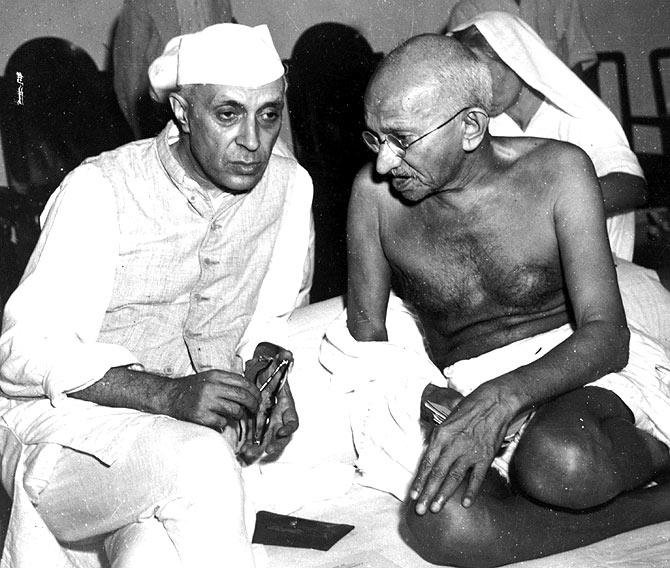
'Nehru knew he could not become the ruler of India unless he had Gandhi's blessing. Gandhi declared that Nehru was his political successor. He said, after his death, Nehru would speak his language. That was a kind of manipulation Gandhi did.'
'If Modi gets the whole authority in his hands, he will be able to consolidate and become a confident ruler, like the leaders of Venezuela and Cuba. But what is his vision of India? I don't think he has a clear vision.'
Professor N A Karim does not hold back the punches in a no-holds-barred interview with Shobha Warrier/Rediff.com
Eight-six-year-old Professor N A Karim is regarded as one of the most outstanding scholars, educationists and political analysts in Kerala.
Politics, he says, has always been a particular love. So active was his involvement in politics as a student that he was expelled from college and had to discontinue his studies for four years.
He did complete his education and earned a Masters in English literature from the Aligarh Muslim University. Later, he taught in various colleges including Delhi's Jamia Millia Islamia and the Institute of English in Thiruvananthapuram, before becoming the pro-vice chancellor of the University of Kerala.
As a college professor, he campaigned to make the state 100 per cent literate. During his stint as pro-vice chancellor, he was instrumental starting a department for adult and continuing education at the University of Kerala.
After retirement, he joined the State Resource Centre of Kerala for Adult And Continuing Education.
When the state government started the Akshara Keralam Project aimed at the total eradication of illiteracy in the state, he was appointed its director.
In this interview to Shobha Warrier/Rediff.com, he explains how Nehru was responsible for the scourge of dynastic politics, how Gandhi manipulated emotions to make Nehru his successor and why Subhas Chandra Bose lost the opportunity of becoming the country's first prime minister.
...
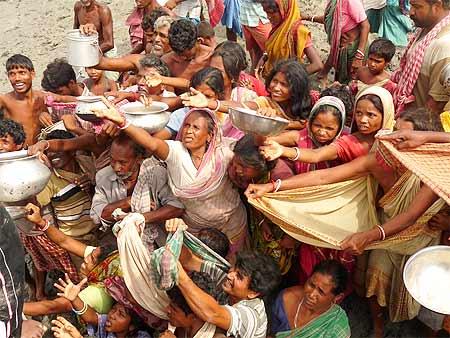
You grew up in pre-Independence India and were part of the political movement. What do you remember about those days?
I was part of the student movement and was very active during the Independence struggle. There was only one All India Students Federation then; later, it split many times.
In 1942, when Russia joined the Allies, the Communists wanted to support Britain instead of creating problems for them so they opposed the Quit India Movement.
I was, till that time, a member of the All India Students Federation, but it was controlled by the undivided Communist Party of India.
We then organised a student organisation that supported the Quit India movement.
The Communists argued that if we fought Britain, we would be weakening the Allies and helping fascist Japan and Germany. British imperialists were better than fascists and Nazis, they said.
I was expelled from college as I became a part of the student movement against the British. I couldn't complete my higher education for four years.
At that time, you must have had dreams about an independent India. Are you happy with the political scene, democracy and society as a whole now?
We had great dreams for an independent India. But I am not happy now. No one is happy, especially those who belong to my generation.
Where have we gone wrong?
We have gone wrong in many respects. I will put the economic policies of the government at the top. It went wrong two decades ago, after the liberalisation of the economy.
As long as Nehru was there, our political positions were correct. He believed in democracy and paid great attention to the working of Parliament. There was liberalism in the atmosphere because he was brought up in the British liberal traditions.
I don't believe in GDP figures. Unless the wealth is equally distributed, what is the point in talking about the GDP? The socialism professed by Nehru is gone.
You see only capitalistic economies flourishing all over the world. Is socialism, as an ideology, dead?
Democracy as understood by us and neo-liberalism as is being practised by many countries don't go together. But there are certain countries like the Scandinavian nations which practise social democracy.
Political democracy alone is not enough; there must be social democracy too. But for social democracy to thrive, certain minimum conditions are necessary.
...
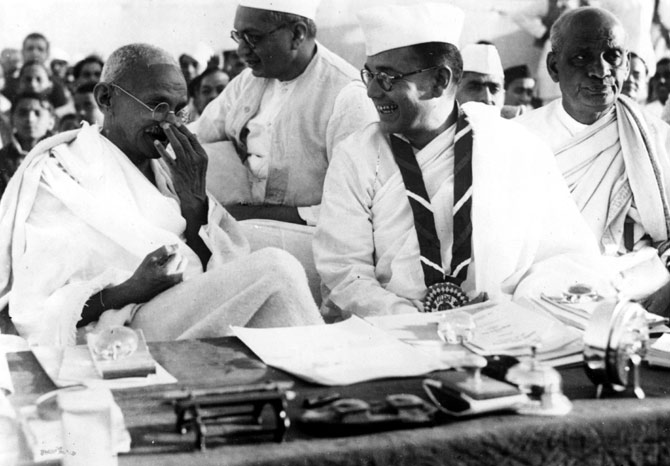
What does India lack in -- social democracy or political democracy?
We have no social democracy or political democracy.
Why do you say we do not have political democracy?
Because democracy has become a farce.
Of course, there is an election every five years and election rules are refined all the time. There is progressive improvement, advancement in the electoral system and electoral democracy, but there are so many other things that have come in because of liberalisation, because of the growth and misuse of media and the influence it exerts on the minds of the people and their outlook.
That influence is so pervading, so strong that you and I may not be able to obstruct it in a very effective manner.
We say we elect people and the election process is fair and free, but what is the outcome?
Do the people we elect have the commitment to face the nation's challenges?
Once elected, they want to rely only on the rich and safeguard their interests.
When do you think the deterioration of political democracy began?
If you want me to point a period, the political deterioration began with Gandhi. He wanted to control the organisation; he didn't want people he disliked to come up.
For example, he disliked Subhas Chandra Bose though he was very obedient towards Gandhi.
Even before Independence, it was not natural leadership. If it were natural, the Indian National Congress would not have had Nehru as its leader.
Gandhi wanted to manipulate things.
There were three people; Sardar Vallabhbhai Patel, Pandit Jawaharlal Nehru and Subhas Chandra Bose. Nehru was a very ambitious man, but knew he did not have the capacity to fight and come up against either Patel, who was a strong man, and Bose, who was immensely popular.
Had it been a natural process, Nehru would have gone out in the first round itself. He became a leader only because of Gandhi's patronage. For that to happen, Nehru compromised on many matters. He opposed everything that Gandhi said only to compromise later.
Nehru knew he could not become the ruler of India unless he had Gandhi's blessing. Gandhi declared that Nehru was his political successor. He said that, after his death, Nehru would speak his language. That was a kind of manipulation Gandhi did.
The second time Bose contested for the Congress presidentship, Gandhi put up his own candidate, Pattabhi Seetharama Iyer. Pattabhi was easily defeated by Bose. Gandhi publicly admitted that Pattabhi's defeat was his defeat.
Even after winning, Bose went to Gandhi and asked him to nominate the working committee members. He only asked Gandhi to leave a few people for him. Gandhi refused. He pressurised his group not to accept any membership under Bose.
There was no democracy in the country and there was no democracy in the organisation. There was no democratic spirit. Without democratic spirit, there cannot be a healthy succession.
All the while, Nehru, in his own subtle, sophisticated and civilised manner, was grooming Indira.
...

So, in a way, dynastic politics started during the pre-Indepedence India?
Nehru was responsible for grooming the dynasty. When leaders themselves do so, how will the people practise democracy?
Where is democracy in the Congress even today? Look at the way the candidates are selected and the matters of organisation are conducted. The word republican has lost its meaning; today, it means succession.
Where is the democratic spirit in the country? Sheila Dixit was defeated in Delhi. There is a case against her. An FIR has been filed. Yet, she has been made a governor. Why?
Sheila was one of Sonia Gandhi’s conscience keepers. If she is kept out, she might blurt out certain things, perhaps in an unguarded manner. So she has been made a governor. Is this democracy?
(Former Union Railways Minister) Bansal (who lost his Cabinet seat over the cash-for-jobs controversy) has been given a ticket. All hypocrisy!
Do you admire Nehru as a leader?
I admire him as a leader except in one case. He dismissed the E M S Namboodiripad-led elected Communist government because that’s what his daughter wanted.
Behind his back, his daughter and R Shankar, president of the Kerala Pradesh Congress Committee, entered into a conspiracy.
Kerala was then looked at as the (Chinese province) Henan of India from where communism was expected to spread to all over the country. It was a great international conspiracy and millions of dollars were flowing into the country.
Nehru knew all this but he also knew the mind of his only daughter, his successor, whom he was grooming to take over after him.
Nehru's family had good people but, in their eagerness to retain power, they resorted to all kinds of manipulations. They are all, in some sense, hypocritical.
That is why my greatest admiration is for Subhas Chandra Bose. Had he come to power, had he been the first prime minister of India, our country would have been different.
Did any prime minister after Nehru impress you?
Not a single one, I must say.
...
Follow the latest election updates on Twitter: @RediffElections
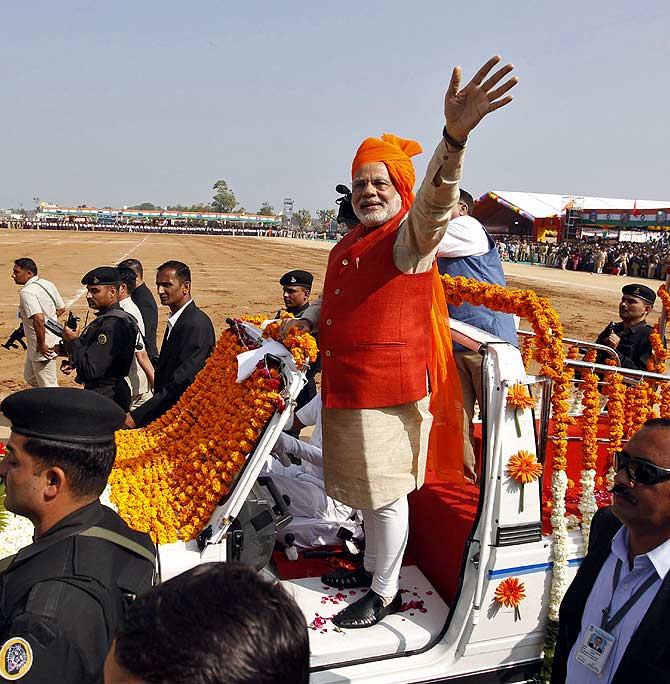
According to most opinion polls, Narendra Modi is tipped to become the next prime minister. What do you feel about him?
He is a made-up man. It is an organised effort by the RSS (Rashtriya Swayamsevak Sangh).
Modi became popular because he began to pamper business houses. It is not self-reliance; it is reliance on Reliance!
Do you think Muslims will feel nervous if Modi came to power?
Of course, there will be nervousness among the common people, though not among the educated people.
Unless the Constitution is suspended and an autocratic Emergency is declared, there is nothing to fear.
Do you think things like the 2002 riots will happen again?
I don't think such things will happen. People have reformed to some extent.
Do you think Modi has reformed?
They have said they are ready to apologise. That itself is a kind of stooping down.
Will Modi be a good administrator?
This is a big country.
If he has the will and gets the whole authority in his hands, he will be able to consolidate and become a confident ruler, like the leaders of Venezuela and Cuba.
But what is his vision of India? I don't think he has a clear vision. Nehru had a vision even if it was smoky and dreamy.
Modi has an advantage in Gujarat as the people of the state are very hard working and entrepreneurial. A state that is prosperous in a way is made to look more prosperous. But there is a darker side there where labour is cruelly exploited.
...
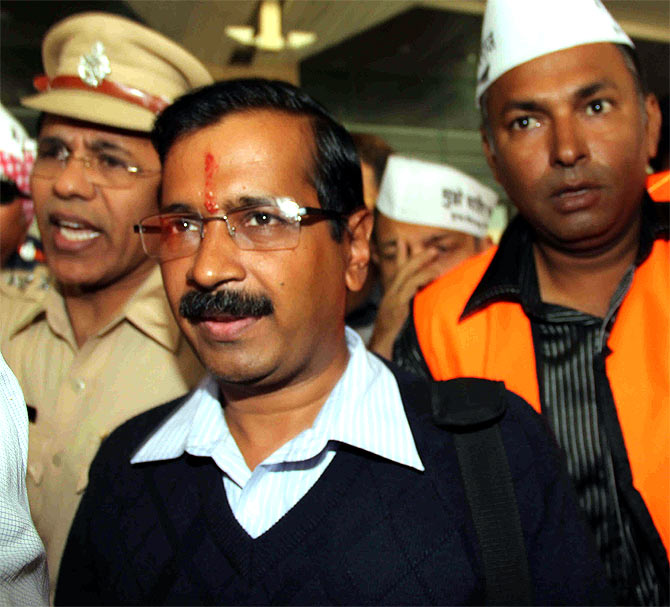
Do you see leadership qualities in Rahul Gandhi?
Lacking. Vision also, lacking.
I don't think Rahul Gandhi will rise up to the challenge. He is too young and inexperienced.Of course, he has a little idealism, a feeling for the poor. He has a heart.
Arvind Kejriwal?
Kejriwal is a promising young man. Perhaps, if we entrust power to him, he may come up.
He has vision and commitment; he has proved that in Delhi. I feel he is a man to be trusted. This is the right time to test a man like him.
Manmohan Singh had a vision of his own that I don't agree with, but he compromised in several things.
How was Manmohan Singh as a prime minister?
He did lasting harm to the country's future.
Some people may temporarily feel he had given a great fillip to the economic development of the country. With free trade comes corruption. Here, whatever rules we have are not observed.
A country like America has rules that are enforced and not compromised. Corruption is punished there but here, it is forgiven.
What is your opinion of the Aam Aadmi Party?
It is a good movement; it is not an organisation or political party.
If they can practise the ideals they preach now, it is a movement that can make some change. Otherwise, this election also is like another election. I cannot say now how much impact it will have. Nobody will be able to say now.
A hung Parliament will be the greatest misfortune for the country. One aspect that can contribute to a hung Parliament will be this Aam Aadmi Party.
...
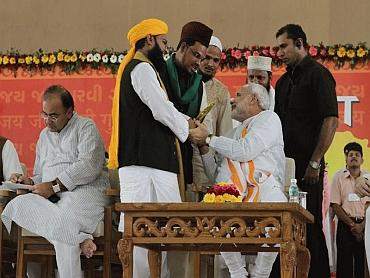
If the country is more communally divided today, who is responsible?
To some extent, our political process is responsible as is our democracy. There are things that can be manipulated to mobilise votes.
After Independence, who supported the Congress? It was the Brahmins, the Muslims and the Dalits. They were the vote bank of politics.
First, the Brahmins left; then the Muslims left partially and gradually; finally, the Dalits did too. Then, they start manipulating to create vote banks.
Look at the political scene in Uttar Pradesh; it is Muslim manipulative politics.
Whoever wants to come to power tries to manipulate Muslim votes without which nobody can rule there.
Why did Modi say he was prepared to apologise? The truth is, you can come to Delhi only through UP.
Our democracy is not growing because of this manipulation of votes by using caste, religion and race.
India has never been one; it has been one only under the British military power.
Do you think Muslims feel discriminated against in India?
Muslims would have integrated into this country provided they have not been misused by these political parties. I would blame the political parties, especially the Congress.
Which is more dangerous -- economic disparity or religious divide?
I consider the economic divide far more dangerous than the religious divide.
Religion as a sentiment will not last long. It is weakening everywhere.
Religious divide exists in India because it is maintained. Political parties consciously cultivate this difference because they use it to hide many things.